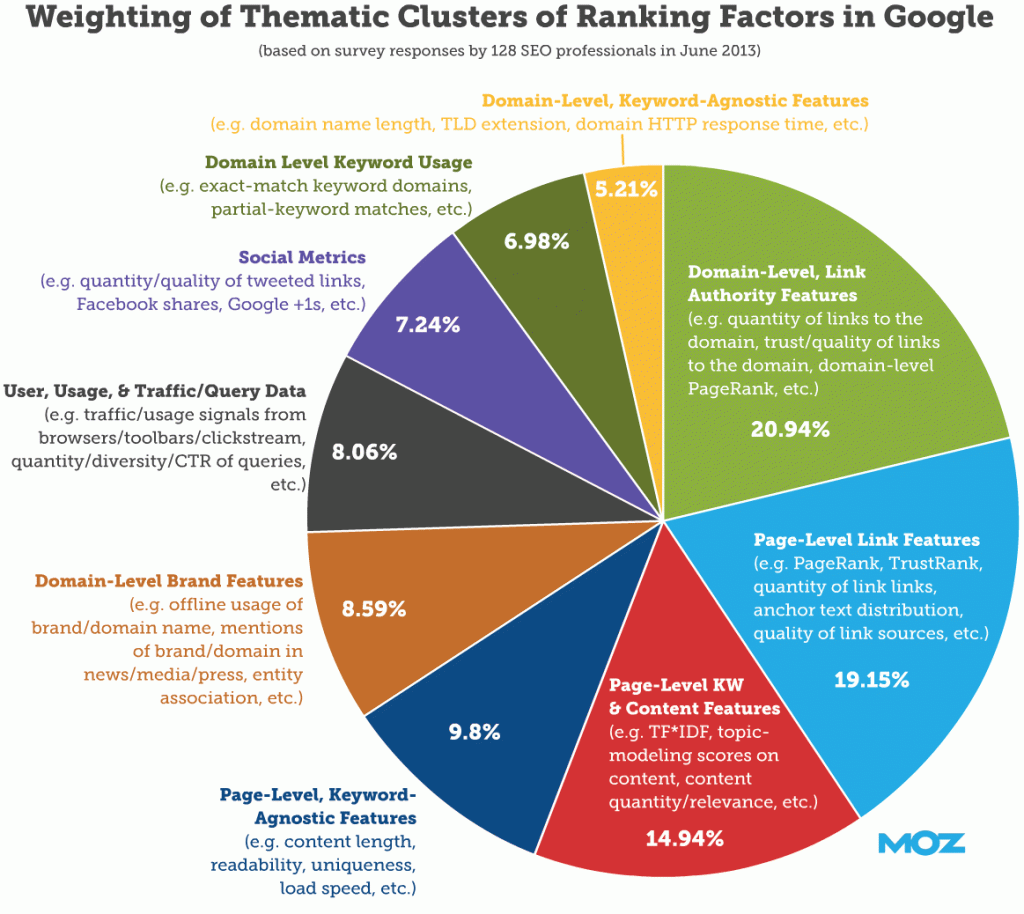What Actually is SEO & How Can it Help You?
The term SEO is one that is used very commonly nowadays and the chances are that even if you have never received any services related to the specialist subject, if you have a website, you will have received an e-mail from some random person offering to change around the fortunes of your online venture with their all encompassing SEO services!!
However, for many people SEO remains a bit of a mystery and below we hope to fill in a few of the blanks for you.
What is SEO?
SEO stands for ‘Search Engine Optimisation’ and is the process of obtaining traffic to your website from the “free,” “organic,” “editorial” or “natural”  listings which are available on search results on search engines.
listings which are available on search results on search engines.
The implementation of SEO techniques will help your website to become user friendly in the eyes of these search engines with the goal of obtaining the highest possible rankings for terms related to your products and services.
How Does SEO Work?
Nearly everyone is well versed on browsing the internet nowadays. Simply fire up your browser, type in your search terms and whichever search terms you are using will magically respond with a list of links to web pages which are directly related to your search term, brilliant!
Have you ever stopped to consider what’s behind those magical lists of links?
“Here’s how it works: Google (or any search engine you’re using) has a crawler that goes out and gathers information about all the content they can find on the Internet. The crawlers bring all those 1s and 0s back to the search engine to build an index. That index is then fed through an algorithm that tries to match all that data with your query.”
Thanks to the guys at Moz for this little breakdown.
There are a lot of factors that go into a search engine’s algorithm,
How Can it Help You?
That’s enough with the technical explanation! The chances are that you are not going to be overly interested in how SEO actually works and are much more likely to be interested in how it can help you!
What you have to ask yourself is how is your website performing compared to your competitors? If they are using effective SEO and you are not, there is a very high probability that your website will be left behind. If they are not using it, you have the ideal opportunity to forge ahead of your competition.
With so many people now turning to the internet when looking for any type of product or service, the question that you have to ask yourself is can you really afford to be left behind?
To find out more about how the Footprint Web Design team can help you, please give us a call on Tel. No. 01883 372488 and we’ll be happy to talk through your options with you.
4 Web Design Mistakes To Avoid
With so many websites currently live, the chances of all online experiences being positive ones are pretty slim. Whilst there can be no doubt that a well designed website can make life much easier, if they are poorly designed, life can quickly become far more frustrating!
Below we have identified 4 of the most common mistakes made by web designers throughout the world (not us of course though!)
Mistake No. 1 – Providing a Poor User Experience
Navigating through a website should never difficult. If your web design makes it difficult, time-consuming or confusing for users to find their way throughout your website, there is a very strong  change that they will not come back.
change that they will not come back.
A common practice is to feature the menu in a prominent location, (typically the top of the page) to counteract this issue.
Mistake No. 2 – Don’t Hide Crucial Information!
Contact information should be easily viewable from ANY page on your website. Why would you want to miss out on a potential sale simply because your contact details are not readily available?
Mistake No. 3 – Minimise The Number of Broken Links
Broken links (a link that no longer works) is certain to make your website look outdated and in need of maintenance. Regardless of whether the destination has been deleted or moved, a broken link will leave your web visitor with nowhere to go.
Mistake No. 4 – Out of Date Content
Whether you are still running an old special offer that is significantly out of date or you simply have not updated the content on your website for years, it is all too easy to give a very poor impression about your website.
Please Note – Don’t forget that Google loves new content!!
Further Information
Footprint specialise in creating bespoke websites and providing online marketing strategies designed to help take your business to another level. We have been providing SEO Surrey since 1998 and if you’d like to speak to us regarding any of our services, give us a call on 01883 372488 or contact us via Facebook and we’ll be happy to talk you through your options.
Currently Browsing: 4 Web Design Mistakes To Avoid
Adding YouTube Videos To Your Blog – All You Need To Know
Are you looking for a way to brighten up your blogs? No matter how interesting your content may be, finding a way to add something a little different to help break up the text and provide a different way to promote your message can make all the difference.
Thanks to WordPress, the ability to embed a YouTube video into you blog could now simply not be easier.
Embedding a Single Video
All you need to do to be able to quickly embed a YouTube video onto a page or blog is simply to copy the video’s URL from your web browser’s address bar while viewing the video:
Once you have done this, you just have to paste it on a line by itself in your post/page editor (important note – please ensure that it is not hyperlinked):
Once you have done this YouTube will take care of the rest! Just like we said, it could not be easier!
(important note – please remember that for the video to remain live on your page/post it must remain live on YouTube. If the poster removes the video from YouTube, the URL that you have used will cease to work.)
Can I Change the Dimension of the Video?
You even have the option of changing the default size of the video if you wish, although you need to do something a little different to do this.
Rather than copying and pasting the URL of the video that you are watching on YouTube, instead look a little further down the screen (just below the video itself) and click on the ‘share’ option.
This will automatically generate a couple of lines of code and by opting for the ‘custom size’ option and choosing your required dimensions will update the code accordingly.
All you need to do then is copy all of the code contained within the ‘embed’ box (as highlighted below) and then paste this into the code option of the page rather than directly onto the page itself.
Can I Embed a Number of Videos?
You certainly can, WordPress offers the ability to You can also embed a YouTube playlist instead of a single video. Simply copy the playlist’s URL from your web browser’s address bar while viewing the playlist:
Be sure to copy the full URL, including &list=… at the end. That copies the entire playlist instead of a single video.
Then, paste it on a line by itself in the post/page editor (to embed with a URL).
(important note – be sure to replace the URL listed here with the URL of your video, and the code is on a line by itself).
Once you have followed the steps above, your playlist will look something like this:
Further Information
Footprint Web Design have been at the forefront of web design and development for nearly 20 years. If you are looking for a website that truly represents your business, or advice on how to make your site stand out, then contact us today on 01883 372 488, or via email at info@footprint.co.uk.




